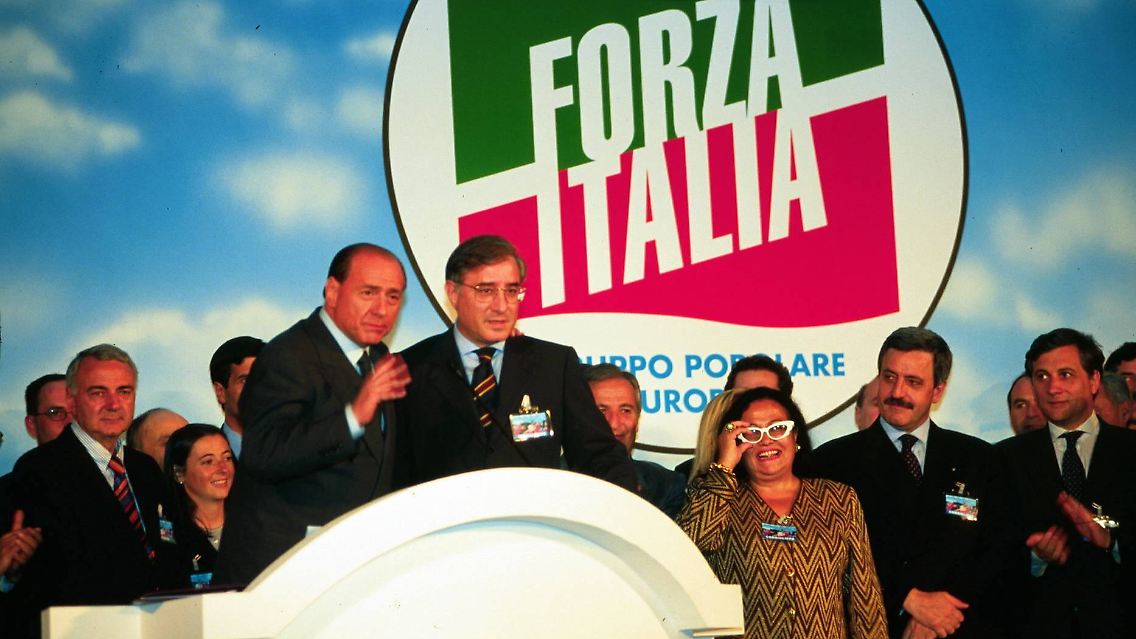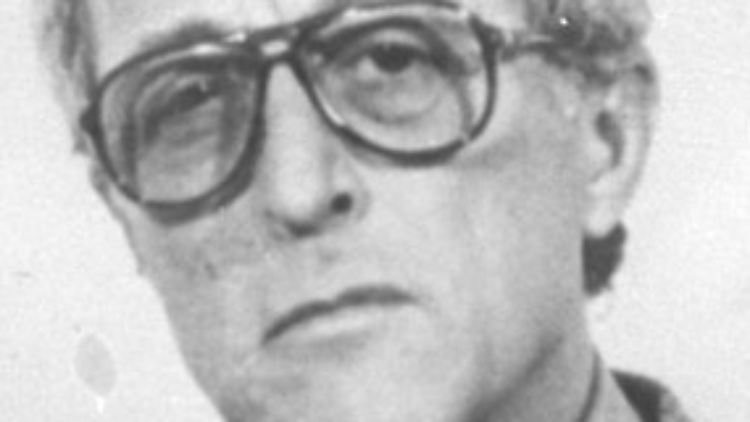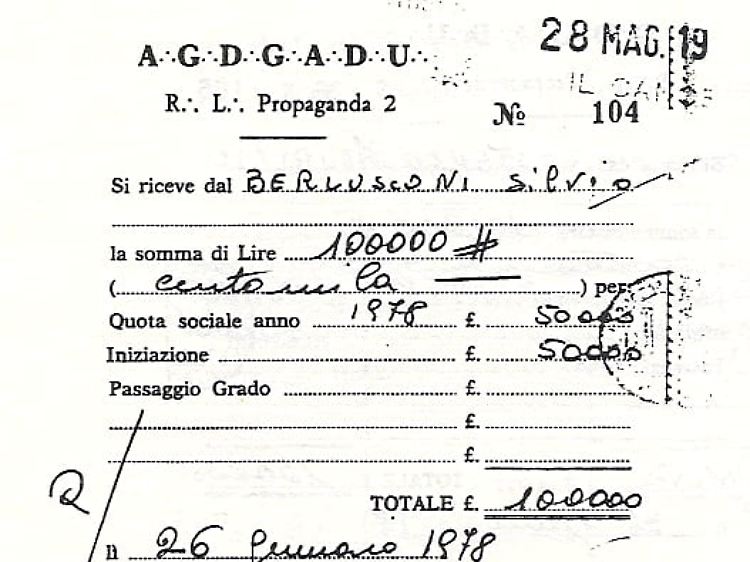Silvio Berlusconi’s wealth always raised the question of where the billions came from – from the mafia? However, the trail of money did not lead to Calabria and Sicily, but via Liechtenstein to the Vatican. Nevertheless, Berlusconi had good contacts with the mafia.
With Silvio Berlusconi, Italy loses a great solo entertainer, the country’s zampano: First he entertained the country with his television stations, which were based on the American television world, offering a lot of light entertainment and little dressed young women.
In doing so, he permanently won over half of the audience. A highly talented graduate of a Milan university, born in Palermo: Marcello Dell’Utri organized the advertising revenue for him. The Sicilian played a central role in Berlusconi’s life: first as manager of the money machine “Publitalia ’80”, the advertising agency of the Berlusconi group. Dell’Utri sold spots, organized the money and helped buy channels for Berlusconi’s holding Fininvest, whose successor Mediaset still attracts a good half of the television audience to their screens. Not only Berlusconi’s shows, but also his news programs were successful because they were fast and focused on the essentials, in the spirit of the boss, as one of his managers, Gigi Moncalvo, once said: “No one is allowed to talk for longer than 20 seconds in my news, 30 seconds , if he’s crying too, 40 seconds if he’s bleeding on camera.”
Berlusconi and his confidante Dell’Utri at a Forza Italia party convention in 1998. The founding of the party was Dell’Utri’s idea.
(Photo: picture alliance / IPA)
One of the friends from the very beginning was Bebo Martinotti. On the occasion of a documentary about the meteoric rise of Berlusconi, Bebo chatted out of the box: “I was his joke tester. I had to make up jokes or tell them more and then see how people reacted. I then passed the best jokes on to Silvio.” In fact, Berlusconi did not resist the temptation to crack jokes – mostly with a sexual background.
Where did Berlusconi’s wealth come from?
Berlusconi’s life is full of anecdotes. The question that always hung over him was: Where did his wealth come from? He was one of the richest men in Italy, with an estimated fortune of seven billion euros. He was born as the son of a bank clerk who had a good salary but initially lived with his family in a middle-class neighborhood behind the train station in Milan. The young Silvio sold classwork to his classmates at the Salesian grammar school and vacuum cleaners to their mothers. He even earned money from his own mother. He put a premium on the milk cartons he bought downstairs, the milkwoman once said. Until Silvio’s mother came to her to ask why the milk was getting more and more expensive.
In 1961 Berlusconi started as a building contractor, in 1972 his company started building the satellite town “Milano 2”, later “Milano 3” was added. The suspicion quickly circulated that he had received the money for these construction projects from the mafia. Some renegade mafiosi reported this, but there is no concrete evidence. The money trail also leads less to the mafia than to the Vatican. Because it is proven that Berlusconi was financed throughout by the Banca Rasini, where his father was an authorized officer. This bank then received generous financing from three Liechtenstein shell companies run by a well-known financial trustee, Herbert Batliner – and this Batliner was chairman of the Foundation of the Vatican Academy of Social Sciences, who tried to safely invest his assets through anonymous shell companies.
A Mafio boss as an employee
In addition, Berlusconi did not appear as the owner himself in the early years. His empire consisted of 38 Italian letterbox companies, the “Italiana Holding” 1 to 38, which stated “beauty salon” as their business purpose.
Why this hide and seek game? A major reason for Berlusconi and many other rich northern Italians was fear of kidnapping. In no case did one want to appear rich. At that time, the business model of the Calabrian mafia, the ‘Ndrangheta, and its Sicilian sister organization Cosa Nostra essentially consisted of kidnapping the children of wealthy Milanese in exchange for high ransom demands. A few years ago, the boss of one of these kidnapping squads, Gaspare Mutolo, said in an interview: “We had already rented a deck apartment in Milano 2 and wanted to kidnap the children. We were ready to grab them when I suddenly saw the children coming out of Berlusconi’s Villa Arcore, accompanied by a person I know.” And who was that? “Vittorio Mangano, a boss of the Cosa Nostra.” Mutolo’s command immediately asked in Palermo, where they only said: “Abort”, everyone back to Sicily.
Today we know that it was close friend Marcello Dell’Utri who asked for protection for Berlusconi in Palermo. And what better protection against mafia kidnapping than having a mafia boss at home? Officially, Mangano was just the stable keeper at Berlusconi’s mansion. In any case, he was loyal: he kept his mouth shut all his life. In 2000, he died in prison as a convicted murderer. Whether the mafia actually paid cash into the countless shell companies of Berlusconi has never been proven.
He has long denied his P2 membership
Marcello Dell’Utri is now serving a seven-year prison sentence for aiding and abetting the mafia’s relationship with Berlusconi, according to the final verdict. Whether it was also about the laundering of mafia money has not been clarified to this day. Only the financing by Banca Rasini, which in turn was heavily financed by Vatican confidants, is documented.
There is also evidence that Berlusconi was financed by Italian banks, which at the time, in the mid-1970s, were under the influence of the secret lodge P2 (“Propaganda Due”) headed by Grand Master Licio Gelli. For years, Berlusconi denied his membership in the lodge, which had been dissolved as a criminal secret organization. In his Villa Wanda in Arezzo, Licio Gelli cheerfully explained that he actually had the copyright to Berlusconi’s first election program because the “renewal of Italy” corresponded exactly to his program.
Gelli was only offended that Berlusconi denied having been a member for a long time: “But we accepted him with a very special sword ceremony back then in Rome, not far from the Spanish Steps.” P2 membership was important for Berlusconi, as many of the state’s top officials were organized there.
Investigations against Berlusconi ran until the end
One of the key witnesses against Berlusconi was Marcello Dell’Utri’s former business friend, Alberto Rapisarda. In a 1996 trial in Palermo, he testified that Dell’Utri had come to him in 1979 and asked for money because business was going badly. Two mafia bosses, Stefano Bontade and Mimmo Teresi, attended the meeting and then invested mafia money in the television business. He himself was there when the two sacks of cash were brought to Dell’Utri’s office. However, the investigations against Berlusconi were dropped due to a lack of evidence.
With the death of Berlusconi, new investigations in Florence, in which Berlusconi was investigated for possible contacts with two mafia bosses, the brothers Filippo and Giuseppe Graviano, are now also being discontinued. It was about a series of assassination attempts by the mafia in 1992 and 1993 that were to plunge Italy into chaos. Berlusconi was suspected of instigating the mafiosi in order to then appear as the savior of the fatherland. Another mafia boss, Salvatore Baiardo, who has already served his sentence, recently reported on such a meeting and claims that there are also photos of a meeting that he himself took.
Nonetheless, Berlusconi’s death has primarily political repercussions. Millions of Italians remained loyal to him until the very end, despite the “Bunga-Bunga” sex parties at his Villa Arcore near Milan involving prostitutes, despite a final conviction as a tax evader to four years in prison, from which he was released thanks to an amnesty only had to “sit out” for a few months as a social worker in an old people’s home.
For Dario Fo “the pinnacle of madness!”
On the other hand, there was the reverence and admiration of many Italians for his chutzpah towards the tax authorities, also for flaunting his wealth: Berlusconi had a hard core of voters who voted for him precisely because of this and regarded him as a role model. Perhaps that’s no wonder in a country where, according to official estimates, 100 billion euros in taxes are evaded every year and where a “macho” is still held in high esteem by quite a few.
Dario Fo, winner of the Nobel Prize in Literature, once described how he explains Berlusconi’s success. The Milanese was very clear: “We really live in a society that applauds corruption. If someone is clever and corrupts, if he robs, evades the judiciary with all conceivable tricks – then that’s positive in Italy today. Worse: They say if he steals for himself, then he steals for me too! That’s the height of madness!” And was that the key to Berlusconi’s success? “Yes, because he only takes up what a poorly educated and morally unscrupulous bourgeoisie sees as their own ideal: the main thing is success!”
What does Meloni do without the support of the Berlusconi media?
Berlusconi’s death is not good news for the stability of Prime Minister Giorgia Meloni’s government. Because he not only owned her coalition partner Forza Italia, but also the television channels, which he used from the start for his own political purposes – actually an absurdity in a democracy. But all attempts to curtail Berlusconi’s monopoly failed. It all started in 1974 with cable television for “Milano 2”, the satellite town he built: “Canale 5”, the fifth channel. He soon bought two more networks, Rete 4 and Italia 1. That is still the core of the media empire, which has always supported Berlusconi’s policies without ifs or buts.
This could soon be over: none of Berlusconi’s five children went into politics and it seems they are planning to sell the TV empire. What will become of the Meloni government without the permanent tailwind of the Berlusconi TV empire?
The future of Berlusconi’s Forza Italia party is also completely open. Previously financed solely by the Berlusconi family, the children could lose interest in it. Berlusconi also spent his life preventing the establishment of a successor. But without Berlusconi’s Forza Italia, the Meloni government will no longer have a majority. Without the Zampano, Italy could face stormy times.


